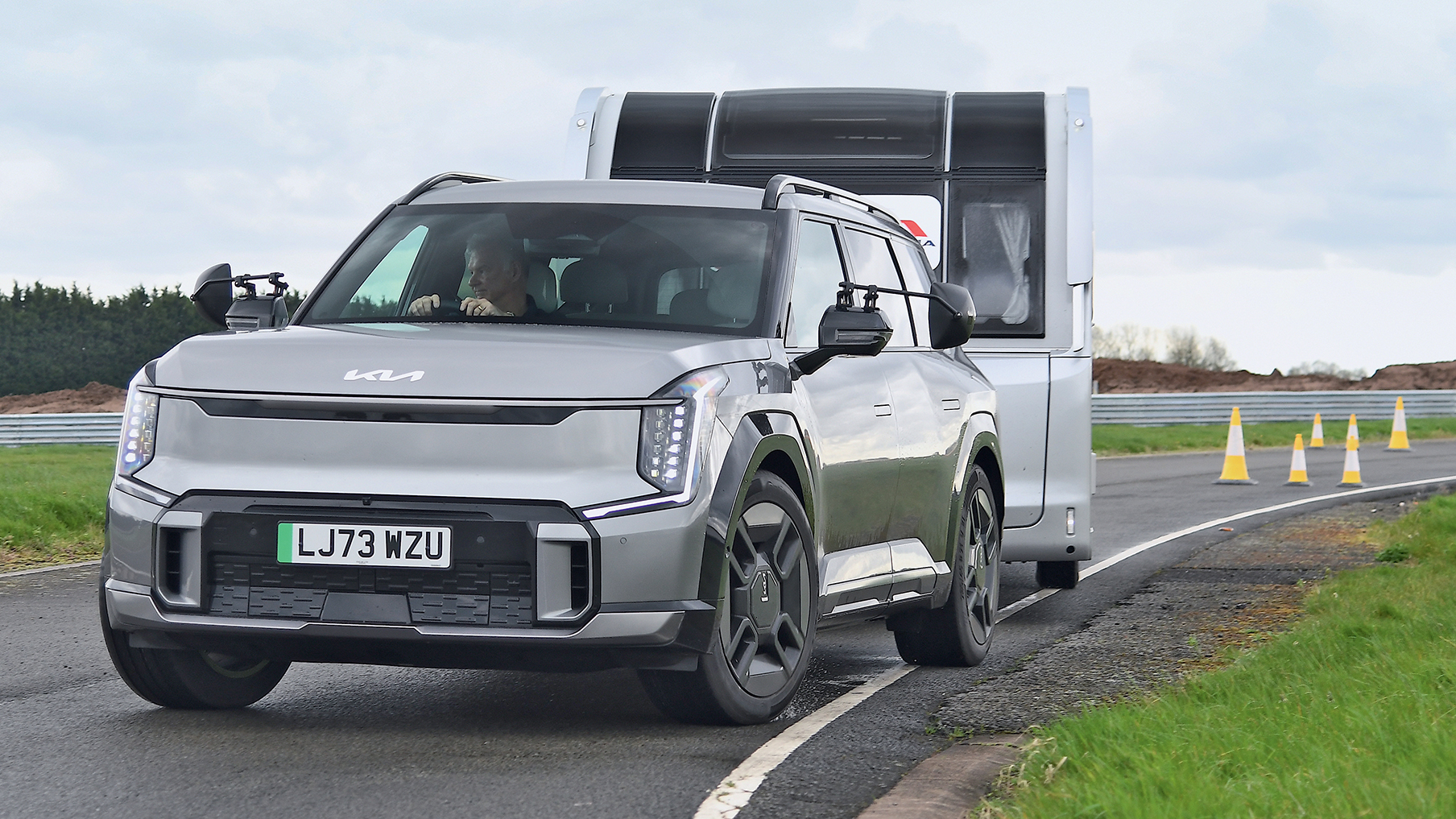
Can an EV really power my camping trip... and make me coffee too?
Yes. An increasing number of EVs, such as the Hyundai Ioniq 6 and MG ZS EV, feature vehicle–to–load, which is a posh way of saying they have a socket you can power things with using your car's battery. That could be anything with a plug, so a kettle to make that coffee, a light for your camping trip, or an air fryer if you want a hot meal while you are away.
Some EVs plugged into a special chargepoint can also send power from their battery to your home. That means you can fill your EV battery overnight when electricity is cheap and use it to run your washing machine, or in the daytime when electricity from the grid would cost more.
Can an EV tow my caravan or trailer?
EVs can tow caravans and trailers, although not all are designed for it and, as with all cars, towing capacity varies.
It’s important that your EV is ‘type–approved’ for towing. This means it’s been properly tested to ensure braking and other systems can handle the extra weight.
EVs with some of the highest towing capacities at 1,800kg or above include the BMW iX, Kia EV9, Tesla Model X and Mercedes EQS SUV.
It’s important to note that towing a caravan or trailer will significantly reduce the range of an EV, alongside other factors including weather, driving style and the weight of what you are towing.
If towing in an EV, you’d also need to consider where you would charge, given many stations are not set up for an appendage on the back.
How long do EV batteries last, and what happens when they wear out?
Much like the battery in a smartphone, how long an EV battery lasts depends on how it’s used, how often it’s charged and what sort of chemistry it uses. The batteries in most EVs will last 10–12 years, but some are still going after closer to 20.
As with a phone battery, EV batteries will lose some capacity over time, so a car that offered 250 miles of range when new, might only go around 180 miles after seven or eight years. There are some Teslas on the road still going strong after 400,000 miles.
In theory, an EV battery that is starting to lose its charge capacity could be replaced. But, by the time that happens, the vehicle will be close to a decade old and many people would replace it anyway.
An EV battery that no longer has enough charge to power a car will still have enough life to be used elsewhere. Some are being turned into power storage units for home or industrial use.
To learn more about EV, watch the Lifestyle EV series on YouTube.





